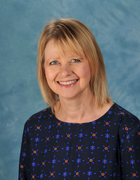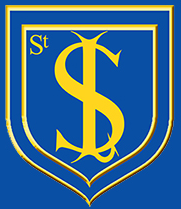SEND and Inclusion
At St Luke’s C of E Primary School, we promote the Christian Values of Love, Courage and Hope. As a school community, we celebrate that there is something wonderful and unique in every person and we value the abilities and achievements of all our pupils. This ethos enables the participation and involvement of all our pupils.
For children with special educational needs and/or disabilities we focus on meeting each child's needs and believe that early intervention and bespoke plans are key to ensuring children achieve their full potential. ‘Closing the gap’ strategies are employed to allow children to make progress from their starting point and keep up or work alongside their peers where appropriate. We work hard to ensure that all children, including those with special educational needs and/or disabilities, make good progress. We enjoy working closely with parents and carers and a wide range of outside agencies to enable all staff to make the best possible provision.

If you have any questions about inclusion at our school, please don't hesitate to get in touch.
Our SENDCo and Inclusion leader is Mrs Sally Mitchell.
Any queries should, in the first instance, be directed to the class teacher.
The 4 Areas of SEND
Communication and Interaction ( C & I )
Communication and interaction needs may involve difficulties with:
- understanding and processing language
- the use of spoken language or nonverbal communication
- Social communication and interaction
- Speech sounds
- Cognition and Learning ( C&L )
Cognition and Learning (C & L)
Cognition and Learning needs may involve difficulties with the skills needed for effective learning such as use of:
- Language, memory and reasoning skills
- Sequencing and organisational skills
- An understanding of number
- Problem-solving and concept development skills
- Fine and gross motor skills
- Independent learning skills
- Exercising choice
- Decision making
- Information processing
Social, Emotional and Mental Health ( SEMH )
SEMH needs are a type of special educational need where a child communicates through behaviour in response to unmet social, emotional or mental health needs.
Children with SEMH needs are often dysregulated, which means that they have difficulties in managing their emotions or their behaviour. They can show inappropriate responses to their emotions. They can feel scared, anxious and misunderstood.
It is estimated that around 150,000 children in mainstream and special schools are experiencing SEMH challenges.
Some neurodiverse conditions, such as ADHD and ASD, can make it harder for the child to make sense of the everyday world around them. This can make their anxiety and dysregulation hard to predict.
SEMH does not have to be a lifelong condition. With appropriate support children and young people can move forward and live successful lives.
Sensory and Physical
Sensory and physical needs cover a range of areas including visual and/or hearing impairment, sensory processing difficulties or physical difficulties. This area of need can also include difficulties with fine and gross motor skills.
These pupils may have a medical or genetic condition that could lead to difficulties with:
- Specific medical conditions
- Gross/ fine motor skills
- Visual / hearing impairment
- Accessing the curriculum without adaptation
- Physically accessing the building(s) or equipment
- Over sensitivity to noise / smells / light / touch / taste (sensory processing difficulties)
- Toileting / self-care
SEND Support at St Luke's
Much of the SEND provision will always naturally occur within the classroom context.
- Lessons are pitched appropriately so that all children can learn and progress.
- Teachers take account of the needs of the individual child and plan different tasks and materials appropriately.
- Tracking and assessment enables each class teacher to analyse the progress of the child
- Classrooms are autism and dyslexia friendly environments.
How does the school know if my child needs extra help?
We have a number of methods to help us identify if a child needs extra help. These include:
- Speaking to current class teachers
- Feedback from parents
- Information from your child’s pre-school or previous school
- Information from previous class teachers
- Information from other services who have worked with your child, for example a speech and language therapists
- Whole school data analysis exercises that occur on a termly basis
This information will be used to create a Pupil Learning Plan for your child to ensure that we meet any additional needs your child may have. We will use the Pupil Learning Plan to monitor the progress and development of your child and seek your views and wishes.
It may be considered appropriate that your child participates in small group or 1:1 interventions to help them within a certain area of their learning. The school has a range of small group out of class interventions, including:
- English support – spelling and reading - 1:1 interventions or small groups NESSY programme
- Speech and Language therapy – WELLCOMM and NELI programmes
- Additional phonics support Read Write Inc. Toe by Toe
- Precision teaching
- ELSA - Emotional and Social Support
- Nurture Club
- Sensory Circuits
Pastoral and Wellbeing Support
ELSA – Emotional Literacy Support
Class teachers have responsibility for the overall well-being of every child in their class. If you have any concerns regarding your child's social and or emotional development in the first instance please speak to your child's class teacher. If further support is needed, the class teacher will speak to the Inclusion Leader. At this stage it may be that we recommend ELSA (Emotional Literacy Support Assistant) for your child.
We are very fortunate that at St Luke's Primary School we currently have five fully trained ELSAs. Our ELSAs are able to offer support in the following areas:
- Friendships
- Anxiety
- Bereavement
- Behaviour management
- Family matters
Parent leaflet about ELSA :
Draw & Talk
https://drawingandtalking.com/foundationpage/
Lego Therapy
https://www.youtube.com/watch?v=qrl9XKKouos
Nurture Groups
https://www.nurtureuk.org/nurture/what-nurture-group
SEND Policy
Information from BCP Council/DfE about SEND
BCP Council SEND Local Offer
The BCP Council SEND Local Offer provides information on services and activities for children and young people living in Bournemouth, Christchurch and Poole aged 0 to 25 with special educational needs and disabilities.
BCP Council - SEND Local Offer
BCP Special Educational Needs and Disabilities (SEND) and Inclusion Strategy 2021-2024
https://search3.openobjects.com/mediamanager/poole/fis/files/bcp_council_send_and_inclusion_strategy_2021-24.pdf
The BCP Graduated Response Toolkit
A graduated response is when a school puts effective support in place for children and young people with identified special educational needs. By doing this, barriers to learning can be removed.
There are 3 stages of support for each of these areas, starting with Quality First Teaching and increasing to SEND Support or Statutory Support (EHCP) if needed.
At every stage within the graduated response, schools and colleges must involve children, young people and their parents/carers.
The Graduated Response Guidance and Toolkit sets out how a school can follow this approach.
https://fid.bcpcouncil.gov.uk/resources/documents/school-age-graduated-response-with-hyperlinks.pdf
DfE SEND Code of Practice
Statutory guidance for organisations which work with and support children and young people who have special educational needs or disabilities. Chapter 6 gives guidance for schools.
Special educational needs and disability code of practice: 0 to 25 years
BCP Inclusion Strategy
BCP Council - Support for children aged 0-25 with Special Educational Needs and Disabilities
Outside Agencies
As an inclusive, mainstream school, we receive support, guidance and training from a range of outside agencies to ensure we have full understanding of your child’s needs and the strategies to support them. We use the BCP Council Graduated Response Toolkit to make referrals to the following agencies:
- SALT (Speech & Language Therapy)
- HSS & VSS ( Hearing and Vision Support Services )
- BCP Outreach Learning Support
- BCP Outreach Behaviour Support
- Educational Psychology. Information for Parents : https://www.bcpcouncil.gov.uk/Schools-and-learning/Educational-psychology/Educational-psychology-information-for-parents.aspx
- CAMHS Child and Adolescent Mental Health Services : Information for Parents
- Paediatric team
- School Nursing team
As part of the Coastal Learning Partnership Multi Academy Trust, St Luke’s is also able to benefit from the support of the Trust’s Educational Psychologist and Specialist Teacher of SEND.
Support for Parents
SENDIASS
The Special Educational Needs & Disabilities Information Advice & Support Service (SENDiass) provide an impartial, confidential and accessible service, with the capacity to provide face-to-face, telephone and electronic support to parents and carers of children with SEND. Our services are free to those families living in Bournemouth, Christchurch, and Poole
https://www.sendiass4bcp.org/Home.aspx
